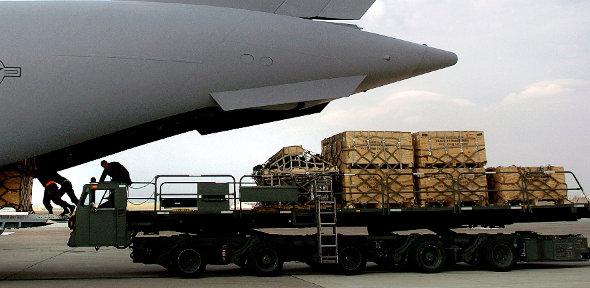
A new project which could help slash airport delays by reducing snarl-ups in the chain of operations that prepare an aircraft for its next flight is being launched by Cambridge University.
While we can't put an end to flight delays, we could be taking measures to ensure that delays are dealt with effectively and guarantee that planes are ready for their next flight sooner.
Professor Duncan McFarlane
The initiative will trial the latest automated identification technology - such as tiny electronic tags that feed information back to computers - to examine how it could be used to speed up airport operations by making equipment and processes more visible. Researchers believe it could lead to "dramatic improvements" at airports around the world.
Earlier research carried out by the Department of Engineering's Institute for Manufacturing (IfM) shows that the use of Auto-ID Technology and better data-sharing between airlines, ground-handlers, fuelers and caterers could cut delays in aircraft turnaround times by 25%. At the UK's 10 biggest airports alone, that would generate annual airline savings of £160 million, and perhaps even more importantly reduce pressure on overstretched airport facilities.
"The project will explore how key parties involved in airport operations, such as airport authorities, airlines, ground handlers, maintenance organisations, fuelers and caterers can work together seamlessly and effectively," Professor Duncan McFarlane, from the Institute for Manufacturing, said.
"The way these parties share information will be examined, allowing them to recognise and share problems quickly and work together to minimise or resolve airport delays as they occur."
The rising volumes of air traffic in recent years, as well as escalating fuel prices and tighter security controls have made airports increasingly vulnerable to system-wide breakdowns. The result can be delayed flights, long queues, lost baggage and wasted time, as well as rising costs for the companies involved.
Many of these delays occur as a result of bottlenecks in the sequence of activities that takes place between consecutive flights, such as baggage handling, refuelling, maintenance tasks and passenger transfer. Because the companies carrying out these tasks don't always share information, a breakdown somewhere along the line can cause a system-wide snarl-up.
Over the last few years, in a range of different initiatives, airports have tested different types of Auto-ID technology which could potentially track different items. Until now, however, the technology has never been used on an airport-wide basis to speed up aircraft turnaround. This will be the focus of the Cambridge project.
The researchers plan to test the use of Radio-Frequency Identification (RFID) tags to provide visibility of different assets used in airport operations, such as ground equipment. The tiny electronic chips would be fitted to items like bags, baggage containers and catering trolleys. They would then feed back information to computers used by the different service teams on the ground, alerting them to problems and keeping them up-to-date with the plane preparation progress.
"The need for more efficient airports is at an all-time high," Professor McFarlane added. "While we can't put an end to flight delays, we could be taking measures to ensure that delays are dealt with effectively and guarantee that planes are ready for their next flight sooner.
"At present the companies who refuel the plane, caterers, baggage-handlers and the airline itself are not sharing information in the best possible way. That means that if, for example, there is a change at the gate at which a plane is due to arrive, that information might not reach everyone involved. Fuel trucks, ground equipment, bags and passengers can end up arriving at the wrong place and that leads to knock-on delays around the airport.
"Auto-ID technology would not only make life easier for service teams; it would also eliminate time-consuming tasks such as counting passengers or establishing that all the luggage is on board. The result should be that aircraft unload, refuel and are ready for their next flight at optimum speed."

